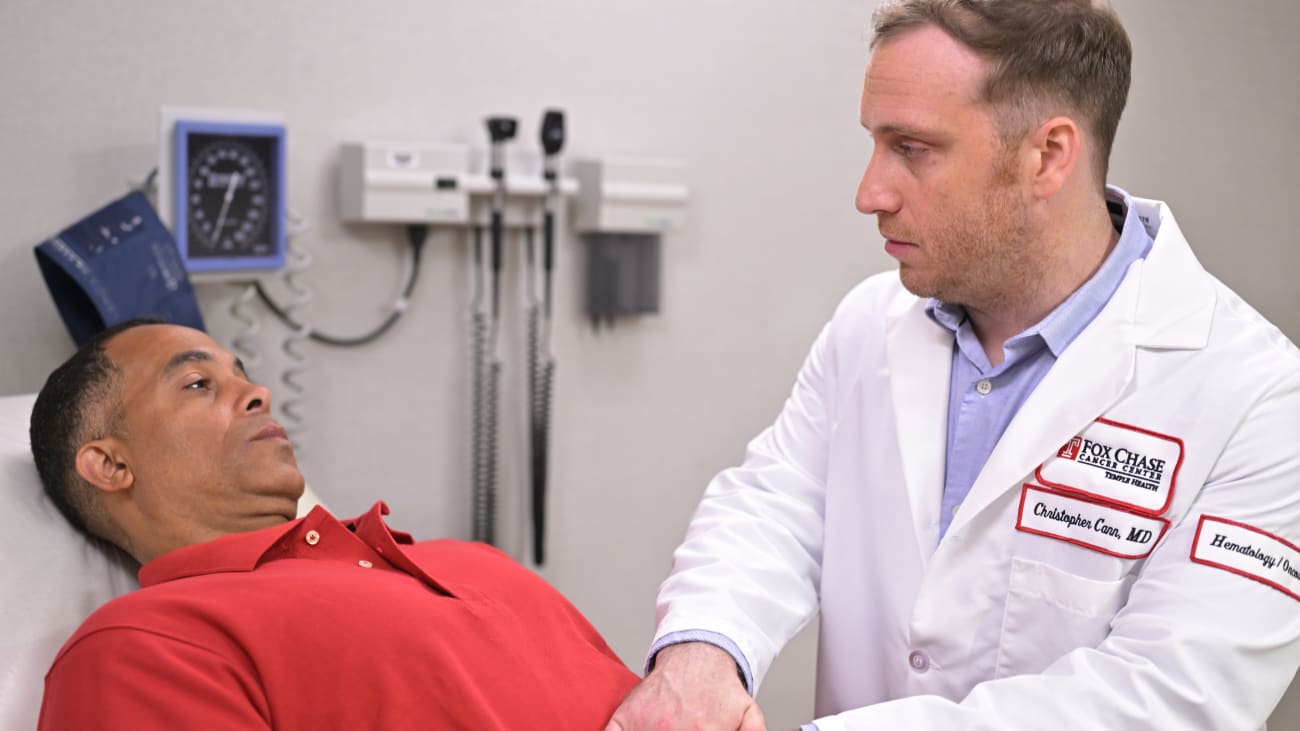

Christopher Cann, MD, leads the Young Adult Cancer Program at Fox Chase Cancer Center, and he is deeply concerned about the rising incidence of cancer in young adults—particularly those between the ages of 18 and 39. The highest rates have been observed in gastrointestinal and breast cancers. Cann says, “Since the 1990s, we’ve seen colorectal and breast cancer rates escalate in those under age 50—rates increasing at about two percent per year.”
At Fox Chase, the Young Adult Cancer Program has been developed as a comprehensive, robust resource to help young adults and their doctors face the challenges of cancer just as someone begins to navigate life’s milestones—finishing school, beginning careers, attaining financial stability, and starting families. It’s a clinical and a psychosocial maelstrom.
Fertility issues are also of great concern to this patient cohort and are an integral part of the Young Adult Cancer Program. Fox Chase specialists help patients and partners navigate the often conflicting goals of achieving a successful cancer outcome with radiation and chemotherapy as well as preserving fertility through various advanced methods.
Why is this occurring?
Theories about rising cancer rates for Gen Xers and millennials mostly exclude hereditary factors, with the majority remaining 80% attributed to sporadic mutations; the underlying cause of this concerning rise in these cancers is derived from somatic mutations. In colorectal cancer specifically, only approximately 20% of cases can be attributed to heritable or germline mutations, with the young adult cancers yet to be elucidated. Possible culprits are thought to be a combination of exposomal factors, including diet, obesity, early antibiotic exposure, microbiome alterations, pollutants, smoking, and alcohol. But while scientists untangle the causative drivers of these cancers, clinicians are developing new protocols for earlier diagnoses, streamlined testing, and referral patterns—initiatives with which the Young Adult Cancer Program at Fox Chase is involved.
“We face an uphill battle in spreading awareness of this phenomenon to both physicians and patients,” says Cann. “Seemingly benign, manageable symptoms such as fatigue and chronic abdominal pain can serve as the only manifestation of an underlying malignancy in this age group.”
Cann says, “I’ve unfortunately had patients whose sole symptom was constipation ultimately diagnosed with stage 4 colon cancer.” So now, even common and vague symptoms may require providers to at least consider that the hoofbeats they hear may be those of the proverbial zebra.
As younger patients often present with more advanced and aggressive disease and appear to have inferior outcomes, it is imperative that there is an increase in physician awareness of younger-onset cancers and a lower threshold for expedited clinical workups, such as performing colonoscopies or diagnostic mammograms. We must educate patients to advocate for themselves, work with primary care physicians to facilitate diagnostic evaluations and subspecialist referrals, and if a diagnosis of cancer is found in a young adult, refer them to dedicated young adult cancer programs like those at Fox Chase.
“For the moment, while we await the discovery of an underlying cause for the rise in young adult cancers, we must work diligently to improve outcomes of these patients,” says Cann. “We should strive to meet the unique psychosocial, financial, emotional, and developmental needs of this underrepresented patient population, which can significantly impact their overall well-being and cancer journey.”


